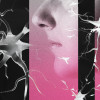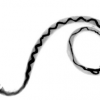The Harms of Psychedelics Need to Be Put Into Context

In November 2021, when the psychedelics company Compass Pathways released the top-line results of its trial looking at psilocybin in patients with treatment-resistant depression, the stock of the company plunged almost 30 percent. The dive was reportedly prompted by the somewhat-middling results of the research—but also because of the scattering of serious adverse events that occurred during the trial.
Amid the psychedelic renaissance, bringing up their potential harms has been somewhat of a taboo. The field, vilified for decades, has only just recently reentered the mainstream, after all. But as clinical trials get bigger—and the drugs are increasingly commercialized—more negative outcomes are likely to transpire. With the Compass trial results hinting at this, arguably now’s the time to open up the dialog about psychedelics’ potential adverse effects—even if it means tempering the hype that has built up.
Those results, now published in full in the New England Journal of Medicine, represent the largest randomized, controlled, double-blind psilocybin therapy study ever done. The participants—233 of them, across 22 sites in 10 countries—were split into three roughly equal groups. One group received 1 milligram of COMP360, Compass’s synthetic psilocybin, a dose so low it served as the placebo. The next group received 10 mg and the last group 25 mg. Psychological support was also offered alongside the treatment.









































































